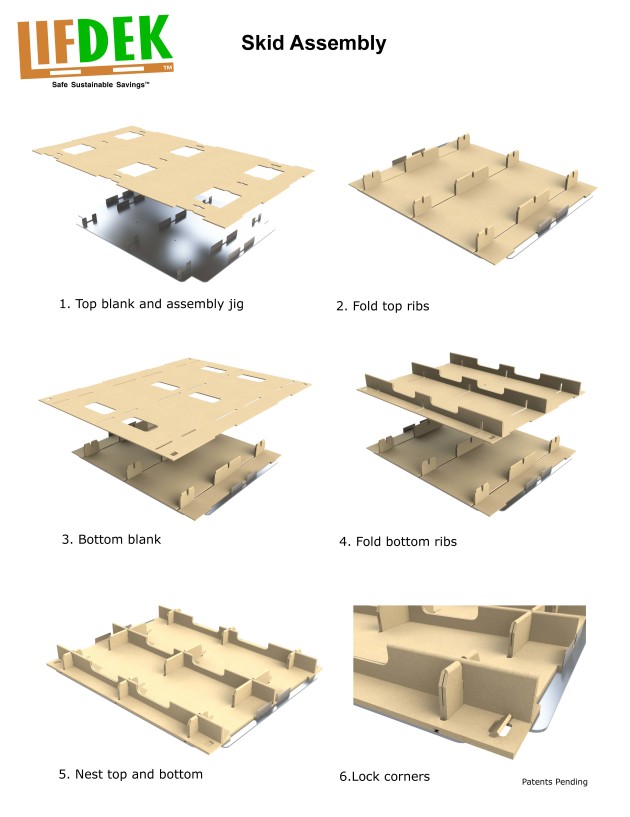Corrugated pallet solution skids into view
Lifdek Corporation has developed corrugated skids as a sustainable, less costly alternative to paperboard ones.
The corrugated paper pallet technology specialist says a portion of worldwide shipping uses equipment that is not compatible with traditional pallets which have a bottom deck, so they use skids.
The new Lifdek skids, which are essentially a paper pallet version with no bottom deck, provide a low-cost shipping platform.

They fold together from two die-cut blanks, without the use of glue or staples, in under a minute and can support more than four tonnes.
Lifdek skids are available in standard sizes, custom sizes, air freight versions, and fractional pallet sizes for retail POP displays.
A Lifdek skid assembly machine which can provide rapid assembly in 30 seconds with just one person is currently in development.
Lifdek pallets were originally developed to address the needs of FMCG, the largest section of the pallet market.
Incoming pallet freight and pallet storage costs are reduced by nearly 90 per cent as Lifdek pallets and skids are received and stored flat.
Lifdek pallets and skids are recycled by the end receiver with other used corrugated boxes, generating recycling revenue while eliminating staging, storing and loading costs required with wood pallet retrieval.
At less than eight pounds, Lifdek paper pallets and skids offer substantial air and LTL freight savings billed by weight, and are a safer alternative for employees and retail customers.




